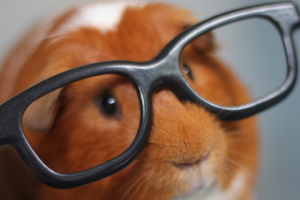
| Date | Author |
|---|---|
| 24th August 2022 | Lorren Harvey |
We are all familiar with the procurement profession’s drive and views on embedding responsible procurement into standard practice. However, how do the students that we ultimately serve feel? How aware are they of their influence on university procurement and the potential it has to make significant impact? Here, SUMS Student Intern Lorren Harvey shares her experience of learning more about procurement and her perspective on the Higher Education sector’s need for social responsibility in procurement – to protect workers from exploitative labour and human rights violations
My Introduction to Procurement in Higher Education
I am very new to the world of procurement, having only started interning for SUMS at the end of June 2022. In fact, I sat at my laptop during my orientation with ‘what does procurement mean?’ sitting in the search bar behind a Teams call while nodding and smiling in a timely sequence to show that I ‘understand’. It means buying stuff, but it also means so much more. I have learned a lot about procurement, extending past its definition of buying goods or services in a way that delivers value for money. Most significantly, I have learned the reality of exploitation that occurs too often in supply chains.
Procurement and the Student Journey
As a student, I turn up at university, and switch on the computers in the library, blissfully unaware of the fact that a) the university has sourced these computers through a rigorous process and b) where these computers and the components needed to make them have come from. I don’t know why I assumed the computers had just always been there. I definitely overlooked that they had in fact been purchased for my benefit – and certainly didn’t put together that they had been bought with my money. A perfect display of ignorance on my part. But as students, we don’t consider these things – although, savvy students and Students’ Unions are asking questions about how our institutions are ensuring supply chains ensure minimal environmental impact. We arrive at university with a newfound sense of freedom. At just eighteen years old, we leave home, move into a big city and begin a new life filled with socialising, studying and perfecting our pesto pasta recipe (equal parts pesto and parmesan).
Beginning university is a scary time, worried about making a good impression and living up to everyone’s expectations. Now, imagine your biggest worry not being getting a First on an assignment or securing a place on the netball team but being forced to undertake work in unsafe conditions for substandard wages, accompanied by fear of workplace violence and exploitation. This is the shocking reality for students in production regions, forced into unpaid or exploitative labour with no protection.
Remedying Human Rights Violations
One of my projects with SUMS was to learn more about Electronics Watch and how they support responsible procurement for the benefit of SUPC Members. Kate Sullivan, Electronics Watch Affiliate Engagement Officer, gave me an eye-opening introduction to the challenges in supply chains. She brought to my attention the horrific human rights abuses and safety breaches that are prevalent within the electronics industry. I felt disgusted at what I was hearing, learning that people my age were suffering so much to produce the equipment that I take for granted.
It became clear that while public buyers intend to be responsible in their procurement, the severity of human rights violations is usually unknown to consumers. Often, buyers believe that by working with suppliers with certain certifications, they are taking sufficient steps to be sustainable. However, the reality is there is little verification. This is where Electronics Watch steps in. Electronics Watch coordinates independent monitoring and remediation to help public buyers protect the rights of workers in their supply chains. This allows students to rest assured that our universities have taken all necessary steps to ensure that our peers across the globe have not suffered at our expense.
The Harsh Reality
Let’s imagine I’ve sat down in the library, turned on the computer and began to write my dissertation. I’ve worked hard for months; come up with the witty title, proven my theory and questioned some literature along the way. I deserve 70% for that! I put the effort in, and hard work pays off, right? The reality is my hard work will pay off. I’ll get a good grade and go on to have a successful career. But at what expense? Do I really deserve to excel knowing that my success was only possible because another student was exploited into slave labour and exposed to violence to produce the equipment that helped me do my research? Concerned about myself and my future, I typed away, without considering how my (or my university’s) consumption induced another person’s suffering. I want to live in a world where my success was not made possible through someone else’s pain.
I want to be a part of a network of universities that strive to make responsible procurement the main priority. I want to see change.
Knowing that the University of Reading, along with all other SUPC Full Members, is affiliated with Electronics Watch via their SUPC Memberships, reassured me. While that membership is important, it’s also important for all universities to ensure they take full advantage of the support Electronics Watch can offer.
How Can Public Buyers Influence Change In Procurement?
The truth is, I personally, as one student, have little influence in the field of procurement. I can do everything possible to raise awareness and persuade people that there is a desperate need for change, but I do not have the power to bring about that change myself. However, a coordinated student voice, working in conjunction with university procurement teams, can make meaningful changes. Public buyers have the power and resources to make a real impact. They have leverage. One voice is easy to ignore, but if institutions join together and form an ensemble, presenting collective expectations of suppliers, they will be compelled to listen.
Purchasing Consortia like SUPC and organisations like Electronics Watch provides a collaborative platform so public buyers can unite and shout their demands for the protection of workers from the rooftop. Together, public buyers have the capacity to bring necessary change to the procurement sector. United, they can work to protect the rights of young people and stop them being forced into dangerous student labour. I implore anyone with the facilities to bring about change, to make responsible procurement a priority.
For more information on the benefits of SUPC’s full affiliation on behalf of its membership, visit: https://www.supc.ac.uk/electronics-watch-supc-announces-full-affiliation-on-behalf-of-its-membership/








